Adgully Exclusive | The all-important audit of Geetanjali Bhattacharji
When Adgully asked Bhattacharji to take stock of her long and distinguished career, she began by recalling the time she was a fledgling professional in the industry. "I think the most interesting choice I made after completing a master's degree in economics was to join Univads, which was the country's first learn-by-doing school of advertising," Bhattacharji said. "I think my learning there had a lot to do with thinking through a brief and ideating, rather than directly dive into advertising. I spent about a year-and-a-half there, and the model was not that you paid to join Sumit Roy, but you were thrown at clients and were expected to service them."
Bhattacharji said she and her colleagues would stay up four to five nights in a row, just trying to understand what research was about. "That was a great leap for me," she said. "Then, I joined Nexus Equity and later I was with Enterprise, a typical advertising company." Sometime during that stint, it dawned on Bhattacharji that she was not cut out for a job of that nature. Around about that time she had a baby. "Once my kid was on his own, I realized I wanted to get back to something closely linked with advertising. So the next big leap was to join an organization engaged in the pre-press discipline. We were the pioneers in developing on-site studio services," Bhattacharji said. In that period, a creative agency would do the artwork for advertisers, she said.
"We realized that a large bulk of what you were paying out to the agencies was really to do with artwork and the adaptation of artwork, processing, and all of that," Bhattacharji said. "We realized there was a need for an organization which could make that its core competence. And I am Peter Drucker loyalist. He says, "do what you are good at and outsource the bits you are not good at'. We took that wisdom and started talking to agencies, and we realized things were not happening."
Bhattacharji and her team then approached the advertisers. "It was amazing, because companies like Pidilite, Star, and Coca Cola don't get their artworks through their creative agencies," she said. "They get a creative concept from the agencies, and all the artwork †whether international or local †get done through a set-up which is in-house but outsourced. I did enough of that and was wondering "what next', when Meenakshi Madhvani asked me to establish a production audit company."
That company was born in October 2005. "It has been four years now and we launched four services, starting with print-production, have done a lot of interesting stuff in terms of compliance, and have a lot of retail clients coming to us," Bhattacharji said. "Consumers don't care if you don't understand production, but they are concerned about quality. So we developed a production procurement manual, and issues relating to compliance, cost, deployments, and visibility come under production audit. Later, we launched film-production audits, and a year after that, we launched PR audits. And now, we are on the threshold of launching events and celebrity audits." Celebrity audits, Bhattacharji explained, allow advertisers to step back and assess a celebrity's brand value. "So now, we have an automated tool that will go through all the articles written as well as advertisements on a celebrity and pick up the words that the celebrity has been most associated with," she said. "Once that's done, we have a tool to analyse those words in terms of proximity to a celebrity's name, proximity to brands, and the industries they belong to¦and we come up with a fit."
Next, Adgully asked Bhattacharji to ponder the changes that have transformed the media industry over the years. "I think it has moved from agency dependence to marketer empowerment," she said. "Earlier, one expected the agency to do everything to build one's brand. But today, marketers are building their own layers and looking at agency for empowerment. The agencies which can deliver in terms of empowering the brand are doing a great job; the agencies that are not, are losing out. Similarly, marketers who are doing well are those who realise that the agency's job is not just to deliver to a brief but to understand the operating space."
All that is no rocket science, Bhattacharji said. "We are telling advertisers this is your money, and this is what is possible given your money and your objectives," she said. "Now, with the partners that you get on board, you need to ensure that you empower yourself with their skills are, don't go to creative agencies to do artwork because that's not their strength. Go to them for creativity. Outsource things that are not your strength. When you engage a PR agency, please don't tell it that volume and value of coverage is what is going to define your reach. You can use your partners constructively if you know the marketplace. And that's what we do for them."
At this point, we asked Bhattacharji to home in on her current role and elucidate the mission. "I have two principal tasks: getting new business for the company and handling new product development," she said. "My role carries many challenges. Identifying needs is the biggest challenge. As for audit, advertisers appreciate its significance if you make them aware of the seriousness of that need. The positioning of service constitutes a big challenge for me. The third, of course, deals with attracting enough smart people to our business and retaining them. Because working on data is not considered glamorous."
It was time for Adgully to mention the dreaded R word †recession. Bhattacharji's answer was calm and calming. "We have cost-conscious customers and value-conscious customers," she said. "Cost-conscious customers cut on overheads and salaries when a period is bad but value-conscious customers will cut on wastage. And in terms of our understanding of the market, we have always been talking to the value-conscious guys." Her company signed a lot of business last year, she said. "But not on the basis of cost improvement," she said. "The buying audit, which has to do with cost improvement, was not the largest vertical that grew. Newer verticals like BTL became very prominent. So recession didn't really affect us."
The discussion thereafter veered to PR. "We have two PR offerings," she said. "One is brand vocabulary assessment †the vocabulary being used in a PR campaign. The assessment studies the words that some brands keep using in their PR, and what is the messaging that drives the association they wanted to build." She said Spatial Access had a tool which goes through files electronically to pick up words, to define the words from a dictionary, and provide results. "The other offering is media analysis, which asks if a brand is reaching the right people through the right medium, she said. "Advertisers are excited that there is a tool like this, because such analysis is not carried out anywhere in the world. We haven't even started marketing it and the kind of response we have got, just through our own PR, has been gratifying."
That led us to the question of Spatial Access' clients. "Our base is made up of over 100 advertisers," Bhattacharji said. "We have a mix of both project and retailer clients. In terms of international clients, we have business that comes in from international partners. So we have consultancies from Europe which send us work for Indian clients they are managing at the global level. Besides, we evaluate Indian markets. Novartis, Samsung, Volkswagen, among many others, are our international clients. The largest chunk is of MNC clients, about 70%. We have tie-ups with international consultancies like FLE and Billetts."
Returning to print production, Bhattacharji said: "I head the vertical and my experience suggests that advertisers need help with standardization. Besides, today, there is no resource list of production partners." If signage or printing is one's business, one works with the same set of partners, she said. "There is no way to know who else does this," she said. "If I have to look for a production online bank, nothing exists; so my endeavor now is to actually digitize and create India's first digital bank of production resources. We hold production workshops every six months, and they are paid workshops. We have agencies sending their clients' trainees to us. Everything is digital today, so you have to either learn for yourself or take a hike. So when agencies heard about our workshops, they liked the idea." The module encompasses basics, site visits to printers, processors, and digital houses, she said. "We tell workshop participants, "this is flex, this is vinyl, this is 13 ounce, this is 10 ounce'," she said. "We explain why a positive doesn't work anymore, and what is CTP about."
In passing Adgully asked Bhattacharji for her thoughts on direct marketing. "We haven't really got into direct marketing very aggressively," she said. "Managing consumer loyalty is one area that a lot of clients are grappling with. How can I actually build on loyalty through direct marketing †that is the biggest challenge." Finally, we requested Bhattacharji to offer a message to young talent. "I feel compared to what we were earlier †and the way we looked at work †young people today take the easy way out. I think kids really need to learn to take the deep dive. There is a lot of surface stuff out there and nobody wants to take that dive."





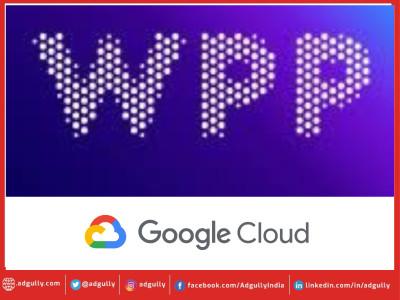
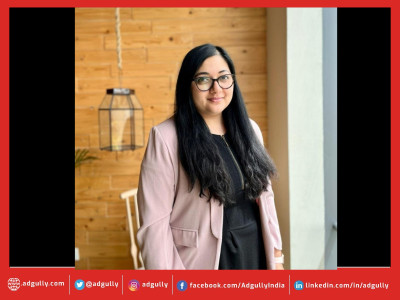
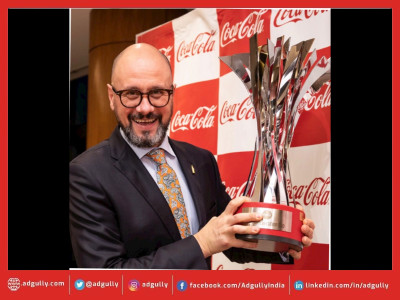
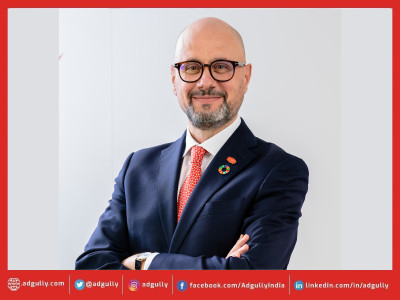

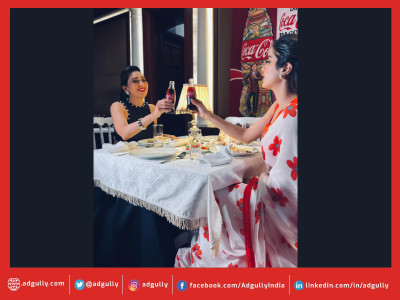

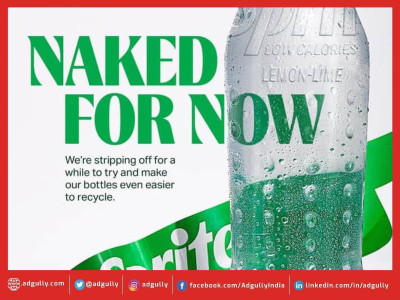



Share
Facebook
YouTube
Tweet
Twitter
LinkedIn